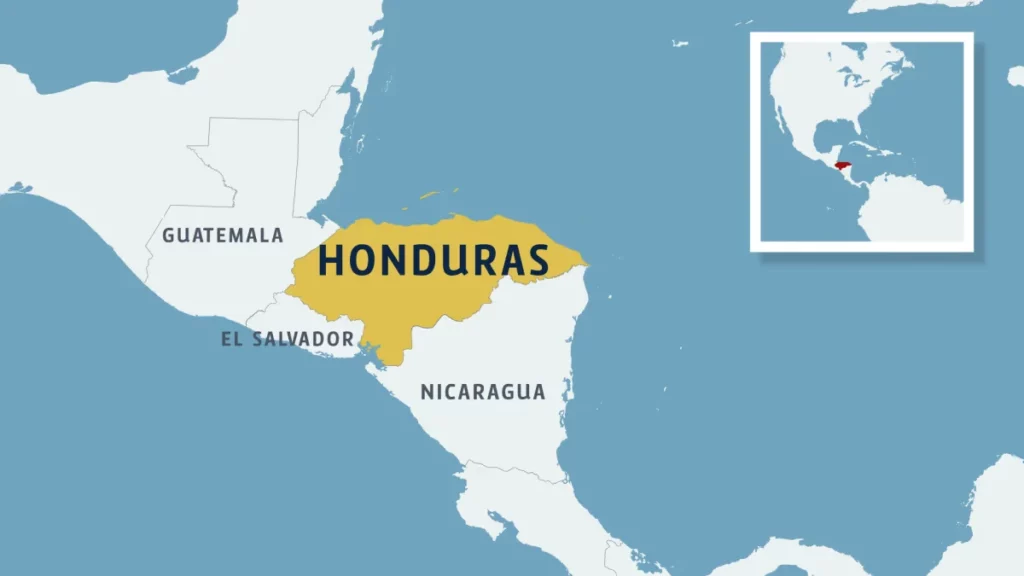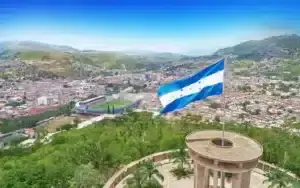Want to know how to move to Honduras?
If you are looking to invest as an expat or high-net-worth individual, which is what I specialize in, you can email me (advice@adamfayed.com) or WhatsApp (+44-7393-450-837).
Introduction
Honduras might not be one of your top travel options. The nation has become one of the least stable in Central America as a result of many years of brutal violence, corruption, and military rule, which have led to extremely high levels of poverty and crime.
However, Honduras has transformed into a global phoenix and has begun to rise subtly from the ashes of its serious problems.
Even though Honduras faces sizable challenges in the future, once you explore the nation and remove the damaged outer layers, you will find a heart that offers travelers distinctive experiences.
The Country and Its Citizens
Honduras is home to over 8 million people and spans over 112 square kilometers of lowland jungle, plains, and mountains.
The nation was once inhabited by Mayans. Christopher Columbus traveled there in 1502, and the Spanish subsequently settled there in 1524 and remained for three centuries. With language and other customs being incorporated into the indigenous way of life, there is a strong Spanish influence.
Following its liberation from Spanish rule in 1821, Honduras initially belonged to the First Mexican Empire before joining the United Provinces of Central American Federation and finally achieving complete independence in 1838.
Many tourists are attracted to Honduras because of its diverse and fascinating flora and fauna. There are many different types of terrain, including savanna, mountains, mangroves, coastlines, and barrier reefs.
There are 6,000 plant species, 250 reptile and amphibian species, 700 bird species, and 110 mammals, with bats making up more than half of them. The oceans in Honduras are home to whales, sharks, dolphins, sharks, fish, and rays, making it a great place to dive for a reasonable price.

Languages in Honduras
Spanish is the most common language used in Honduras. Creole English and a few other Amerindian languages are among the smaller dialects that are spoken in the nation.
Numerous characteristics of the Spanish spoken in Honduras, Nicaragua, and El Salvador are also shared by that language. Spanish spoken in Honduras has been influenced by a variety of indigenous dialects as well as Afro-Antillean dialects.
The use of local and slang jargon has increased, which is what defines it. The letters J and S are typically dropped from this dialect, making the letter H in English sound like it is being spoken. These letters occasionally lack any kind of expression.
The Honduran Climate
In Honduras, the weather hardly ever varies from month to month; instead, temperature variations are determined by altitude.
Tegucigalpa typically experiences a temperate climate with temperatures between 24 and 29°C. The humid coastal lowlands to the east and west typically have temperatures between 28 and 31 °C.
In the country’s center, the rainy season lasts from May to November, while it lasts from September to January along the North Coast and the Bay Islands. As one might anticipate from a tropical climate, there is a storm risk throughout the entire year.
Travel may become challenging due to flooding and mudslides brought on by heavy rain. August through November is hurricane season.
How to Move to Honduras: How to Get to Honduras
In addition to the Ramon Villeda Morales International Airport in San Pedro Sula, Honduras also has the Goloson International Airport in La Ceiba, the Juan Manuel Galvez International Airport on the island of Roatan, and the Toncontin International Airport in Tegucigalpa.
Regular domestic service exists between these hubs; however, it should be noted that there are no flights on Good Friday or Christmas Day.
Although Honduras lacks a flag carrier airline, a number of airlines, including Central American Airways and Avianca Honduras, a subsidiary of the larger Avianca brand, offer service.
While most people travel by air, there are other ways to reach Honduras. There are numerous international bus services that transport travelers from Honduras’ major cities to other Central American hubs.
For El Salvador, the main crossings are El Poy and El Amatillo; for Guatemala, El Florido, Agua Caliente, and Corinto; and for Nicaragua, Las Manos, La Fraternidad, and Guasaule.
Establishing a Residence in Honduras
Retirees, those with income from investments outside the country, and those looking to invest in their own futures through some sort of business are the three main groups of residents.
Depending on your nationality, different procedures must be followed in order to obtain residency and relocate to Honduras.
For example, Canadians must start the process at home with the nearest Honduran Embassy, whereas Americans can finish the process while already living in Honduras. All applicants must process their residence applications through a Honduran lawyer.
Obtaining residency and moving to Honduras will cost about $2,500 per person, and depending on the type of application, the process can take anywhere between six and nine months to complete.
Owning a Property in Honduras
Honduras has lenient laws governing foreign nationals’ property ownership. In Honduras, a foreigner without a place of residence is permitted to personally own up to three-quarters of an acre.
A Honduran corporation can be easily established, enabling you to increase your ownership. You will have the same ownership rights as any Honduran citizen if you are an expatriate who moves to Honduras.

Building Your Home in Honduras
Honduras has many excellent architects and builders, and construction costs are affordable. Depending on finish, the average cost to build a house out of wood is between $80 and $100 per square foot, while the cost to build one out of concrete is between $100 and $120 per square foot.
On the island of Roatan, a number of shops selling both imported and handcrafted goods offer excellent quality fixtures and furnishings that are easily accessible.
Additionally, it will be less expensive to purchase furniture and larger items on the mainland than it will be to import them from the United States. Particularly in San Pedro Sula, shopping for vehicles, furniture, and other necessities is a great option.
How to Move to Honduras: Moving Your Belongings to Honduras
When you relocate to Honduras, you can transport your belongings easily because the country has deep-water ports on both its Atlantic and Pacific coasts. A 20-foot container, for instance, costs $1,200 to transport from Florida to Roatán.
In addition, you have a single chance to import household goods duty-free and a chance every five years to import a vehicle duty-free under the retirement residence category.
Communication System in Honduras
Honduras’s communication infrastructure is effective and constantly improving. Landline, cell, satellite, and VoIP telephones are all available.
For home wireless internet setup, the majority of people use their local cable and internet providers. Have no fear if you were concerned about how to continue paying your bills in the United States after moving to Honduras because it is all possible through the internet.
Before moving to Honduras, make sure to set up internet access for all of your banking and financial interests in the US. You can watch television on both cable and satellite.
Decided to move to Honduras? Check out this article on expat financial advisors in Honduras.
Pained by financial indecision? Want to invest with Adam?

Adam is an internationally recognised author on financial matters with over 830million answer views on Quora, a widely sold book on Amazon, and a contributor on Forbes.



